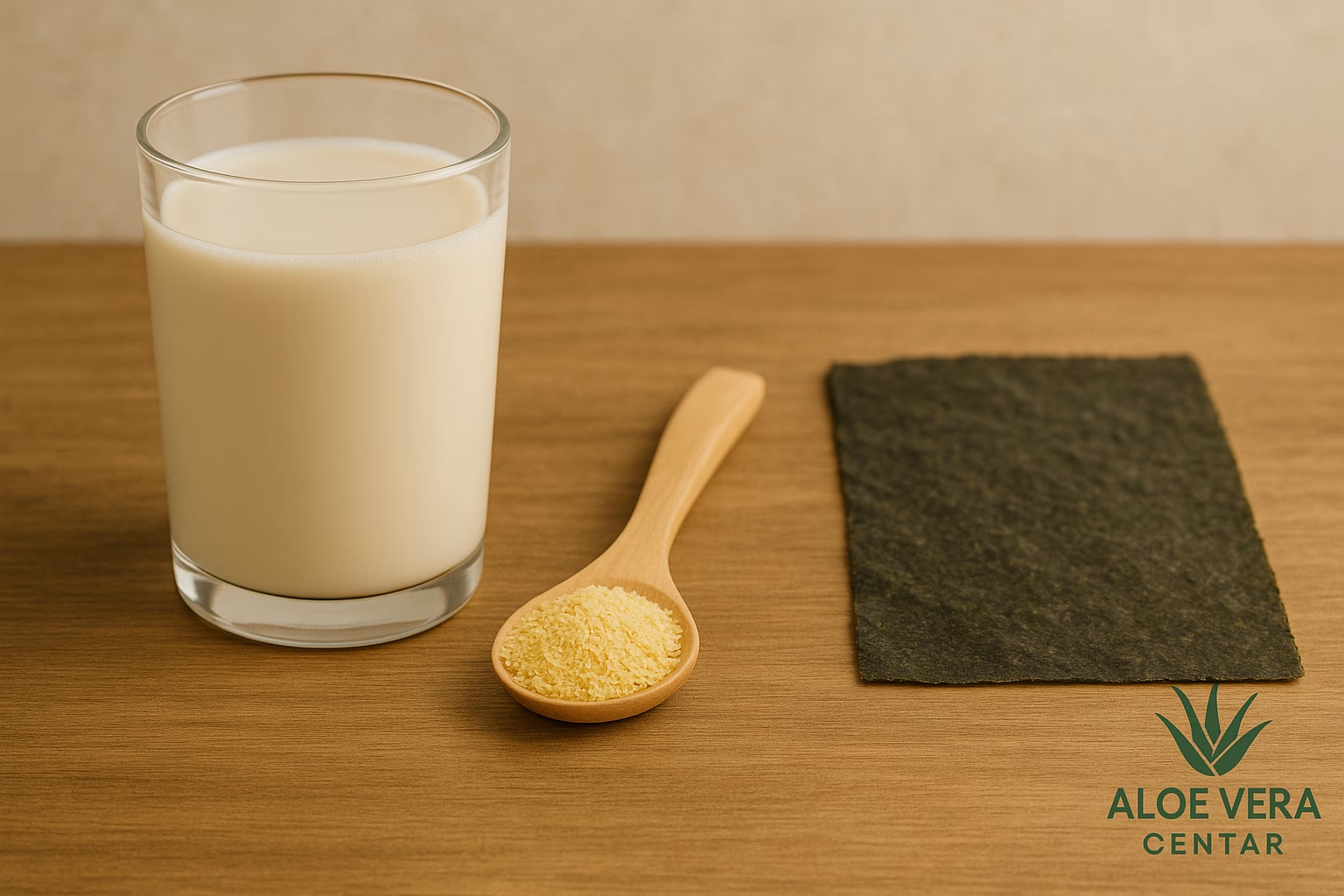
Natural Sources of Vitamin B12 for Vegans – how to Prevent Deficiency
Natural Sources of Vitamin B12 for Vegans: Complete Guide
Vitamin B12 is often the “weak spot” of a plant-based diet, but here’s the good news: with some knowledge and planning, you can replenish your stores of this essential vitamin – without compromising your vegan principles. Below, we’ll address all concerns, show where B12 exists in nature, and offer concrete advice for safe supplementation. Ready? Let’s begin!
Why is Vitamin B12 so Crucial for your Body?
You might wonder why there’s so much fuss about a single micronutrient. Here’s why:
- Energy and metabolism: B12 helps convert food into fuel, supporting vitality and endurance.
- Nervous system: It’s essential for maintaining the myelin sheath that protects nerves.
- Blood count: Without enough B12, megaloblastic anemia develops – causing chronic fatigue that “steals” productivity.
- Mental health: A 2023 Harvard study linked B12 deficiency to increased risk of depression and cognitive decline (study on PubMed).
How much B12 Do Vegans Really Need?
According to the European Food Safety Authority (EFSA), adults are recommended 4 µg daily. The rule of thumb is: better slightly above the recommendation than below, as the body only absorbs a portion of the vitamin intake.
Most Reliable Plant-Based B12 Sources
If you thought plants couldn’t provide B12, wait until you see the list below. But that’s not all…
1. Fortified Plant-Based Drinks and Cereals
Manufacturers increasingly add cyanocobalamin or methylcobalamin to popular soy, almond, and oat drinks, as well as breakfast cereals. Read labels carefully – aim for at least 2 µg of B12 per serving.
2. Nutritional Yeast – Tasty “Super Powder”
A few teaspoons of nutritional yeast can provide your complete daily dose while adding a cheesy flavor to your dishes. Perfect for sprinkling on pasta, soups, or high-protein plant-based meals.
3. Fermented Foods: Kombucha, Tempeh, and Miso
There’s a widespread myth that ferments naturally contain high amounts of B12. However, studies show it varies batch by batch (some packages only contain traces). Enjoy them for their probiotics, but don’t rely exclusively on fermented foods for B12 intake.
Special Gifts from Nature: Algae and Microbes
Sounds too good to be true? Keep reading…
Nori, Chlorella, and Spirulina – What Does Science Say?
Nori sheets (for sushi) contain an active form of B12, but the amount significantly depends on drying and origin. Chlorella shows promising results, while B12 in spirulina is mostly a ‘pseudo’ form that the body doesn’t use (Healthline analysis). So, algae are a bonus, but not a guarantee.
Supplements as a Safety Net
The reality is clear: even a perfectly planned menu sometimes won’t meet the requirements. This is where a quality supplement like Forever B12 Plus comes in, combining B12 with folic acid for synergistic effect. Even better, through our AI advisor, you can get a personalized dose based on your age and lifestyle in just a few clicks.
Note: for serious deficiency, your doctor might recommend injections. Always make decisions in consultation with a professional.
How to Improve B12 Absorption?
- Combine intake with a B complex containing other B-group vitamins.
- Maintain healthy stomach acidity – heartburn?
- Avoid excessive alcohol and nicotine intake that damage the digestive system lining.
Sample One-Day B12-rich Menu
Want to see how this looks in practice? Check out the following schedule:
| Meal | Foods | Approximate B12 (µg) |
|---|---|---|
| Breakfast | B12-fortified oat drink + bowl of cereal, 2 teaspoons nutritional yeast | 3.0 |
| Lunch | Vegan wrap with tempeh, avocado, and fresh vegetables | 0.8 |
| Snack | Smoothie with nori powder and banana | 0.3 |
| Dinner | Lentil chili with fortified bread | 1.0 |
| TOTAL | 5.1 |
As you can see, the daily target dose is exceeded, but for lean days, there’s also the option of a backup tablet or spray.
FAQ – Frequently Asked Questions
1. Is Taking one B12 Tablet Weekly Enough?
If the dose is high (e.g., 2000 µg), a weekly regimen can be practical. However, many feel better with a smaller daily dose as the vitamin is absorbed more efficiently.
2. Can I Rely Solely on Spirulina?
No. Most B12 in spirulina is an inactive analog. Use it for proteins and antioxidants, but not as your main B12 source.
3. How Quickly Does Deficiency Improve after Supplementation?
Mild anemia may resolve in 6-8 weeks, but neurological symptoms take longer. Regular blood tests are key to safety.
4. Are there Plant-Based “Mega Doses” of B12?
Not in reliable amounts. That’s why fortified foods and supplements remain the safest option.
Conclusion
B12 deficiency doesn’t have to be the “Achilles’ heel” of a vegan diet. Enrich your smoothie with nutritional yeast, add nori to your salad, drink fortified plant milk, and – for complete security – use 15% discount on a quality B12 supplement. Your body (and mental energy) will thank you in just a few weeks.
Related Readings and Additional Resources
For a more detailed overview and practical information about supplementation, check out our article on Forever B12 Plus – a supplement that combines vitamin B12 and folic acid for maximum absorption and synergistic effect.
If you’re interested in how to ensure sufficient energy throughout the day through diet and supplements, take a look at our guide on protein breakfast. It shows how to combine proteins and micronutrients for a strong start.
Vitamin B12 is also closely linked to hormonal health, especially thyroid function. In the article tips for thyroid health, learn more about the role of iodine, selenium, and other key nutrients.
By combining fortified foods, practical supplements, and knowledge about related nutrients, you build a solid foundation for energy, mental clarity, and long-term health on a plant-based diet.
Note: This article provides general information and is not a substitute for professional medical advice. For specific needs, consult your doctor or qualified nutritionist.








